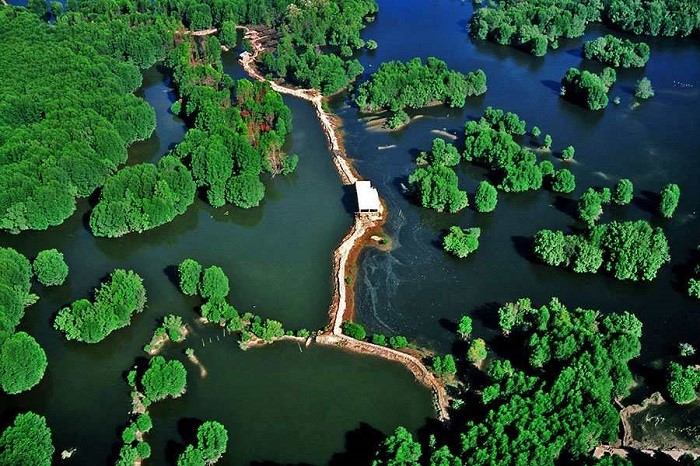The Vietnamese government and international organizations are working together to conserve biodiversity, enhance environmental resilience, and improve local livelihoods through the sustainable management of the country's World Biosphere Reserves.
Harmonious coexistence between people and nature
A World Biosphere Reserve is a title granted by UNESCO to areas with outstanding natural and biodiversity value. These reserves are seen as "learning sites for sustainable development," where interdisciplinary approaches are tested to understand and manage changes and interactions between ecological and social systems, including mitigating conflicts in biodiversity management.
This model promotes harmony between people and nature, combining nature conservation with the sustainable socioeconomic development of local communities. Since its establishment in 1976, World Biosphere Reserves have expanded globally, significantly contributing to the United Nations' sustainable development goals. UNESCO's MAB-ICC has designated NoUNESCO as International Biosphere Reserve Day.
Since the recognition of Can Gio Mangrove Forest as Viet Nam’Viet Nam'sorld Biosphere Reserve in 2000, the country now has 11 recognized reserves nationwide. These reserves play a vital role in the lives of millions of people and serve as habitats for rich native flora and fauna, including endangered, rare, and priority-protected species. Amid increasingly complex and unpredictable climate change, biosphere reserves are crucial in maintaining climate balance and protecting biodiversity through their conservation, support, and development functions.
 Can Gio Mangrove Biosphere Reserve
Can Gio Mangrove Biosphere ReserveStrengthening restoration and sustainable management of Biosphere Reserves
In Viet Nam, the project “Integrating Natural Resource Management and Biodiversity Conservation into Socio-Economic Development Planning and Management of Biosphere Reserves” has been implemented from 2020 to 2024, achieving significant outcomes. It has enhanced the legal framework for the development and sustainable management of World Biosphere Reserves (WBRs) in Viet Nam, supported restoration, and promoted sustainable management of over 1.8 million hectares of forests and marine areas in the Western Nghe An, Cu Lao Cham - Hoi An, and Dong Nai Biosphere Reserves. Additionally, the project has improved the livelihoods of more than 3,100 local households.
Despite these achievements and the contributions of biosphere reserves to the environment, nature conservation, biodiversity, and socio-economic development, managing WBRs in Viet Nam still faces several challenges. These include ongoing issues in cross-sectoral coordination, limited financial and human resources, and gaps in community participation and benefit-sharing in natural resource management. Local residents still need more information and awareness of their role in conservation and livelihood development in some areas.
In the coming years, the Ministry of Natural Resources and Environment, as the national focal point, will continue to lead discussions with stakeholders at both central and local levels and collaborate with domestic and international organizations and individuals to mobilize resources. The aim is to improve and implement more effective policies for the sustainable development and management of WBRs in Viet Nam, contributing to sustainable development goals and a vision of harmonious coexistence between nature and people in the decades ahead.